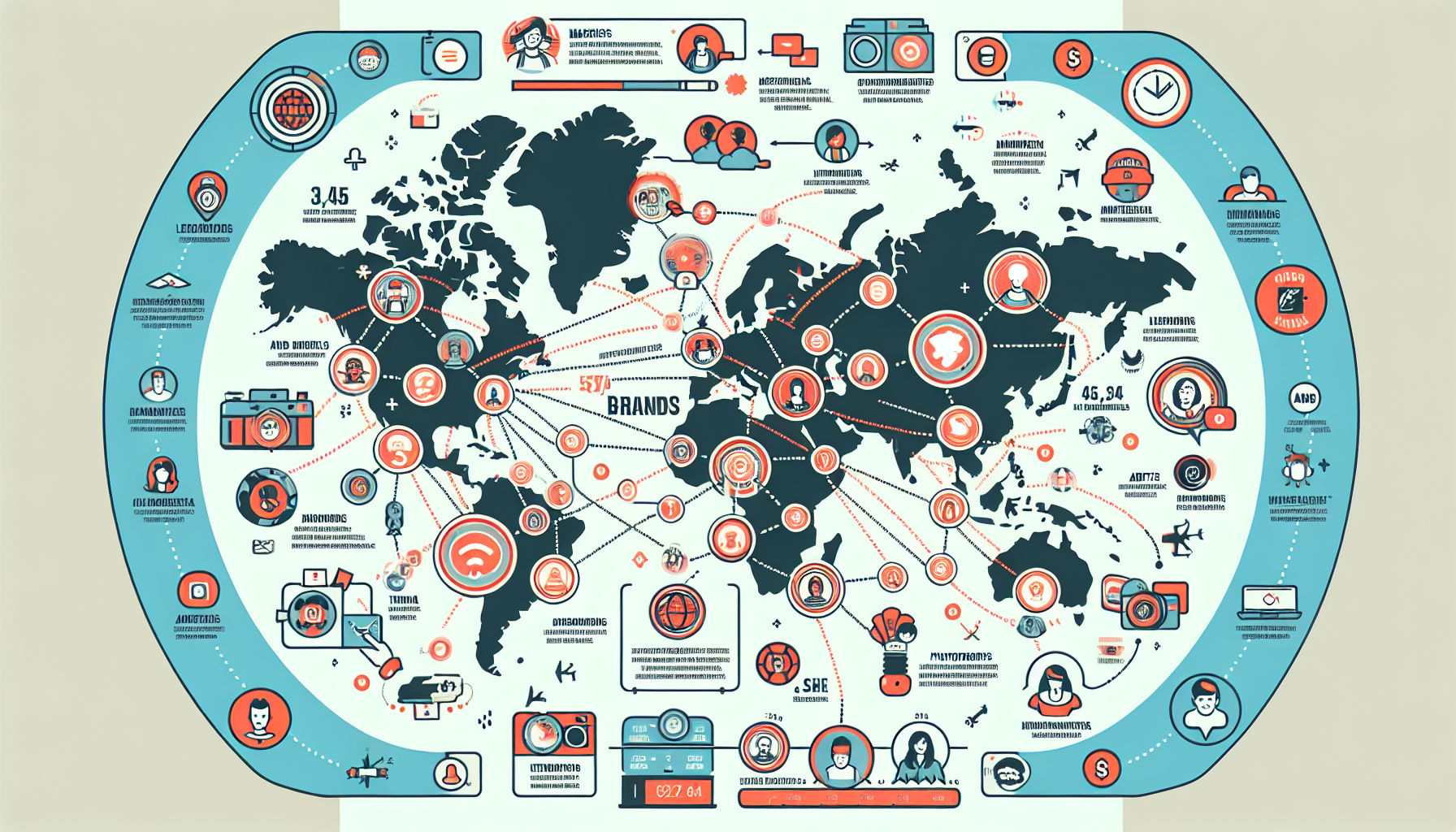
- 23 Mar, 2024
The Global Reach of Influencer Platforms: Connecting Brands with International Creators

Introduction to Influencer Platforms
In today's digital age, influencer platforms have revolutionized the way brands connect with their target audience through the power of social media. These platforms serve as intermediaries by connecting brands with influential creators who have a loyal following and can effectively promote products or services.
With the rise of social media channels such as Instagram, YouTube, and TikTok, influencers have become key players in the marketing strategies of many companies. Brands are increasingly turning to influencer platforms to harness the reach and engagement of these international creators to promote their products on a global scale.
One of the key advantages of using influencer platforms is the ability to reach a diverse and global audience. By collaborating with influencers from different countries and cultural backgrounds, brands can tailor their marketing campaigns to resonate with specific target markets. This level of personalization and authenticity can significantly boost brand awareness and customer engagement.
The Global Reach of Influencer Platforms: Connecting Brands with International Creators
As brands expand their reach beyond local markets, the utilization of international creators through influencer platforms has become increasingly vital. These creators offer a unique perspective and connection to diverse global audiences, providing brands with a competitive edge in the crowded digital landscape.
By collaborating with international creators, brands can tap into new markets and demographics that may have been previously inaccessible. This diverse approach not only broadens the brand's exposure but also enhances its reputation as a globally-minded company that values inclusivity and cultural diversity.
"Working with international creators allows brands to organically integrate into different cultures and communities, leading to authentic audience engagement and long-term brand loyalty."
Furthermore, international creators bring a fresh and innovative take on content creation, offering brands the opportunity to explore new creative styles and storytelling techniques. This infusion of creativity can inject excitement into marketing campaigns, capturing the attention of audiences across borders and languages.
Collaborating with international influencers also presents brands with the chance to leverage the creators' existing fan base in foreign markets. These creators often have established credibility and trust with their followers, creating a seamless transition for brands looking to expand their global presence.
In conclusion, the global reach of influencer platforms, facilitated by international creators, offers brands an unparalleled opportunity to transcend geographical boundaries and connect with audiences worldwide. By embracing diversity and cultural authenticity, brands can unlock the full potential of influencer marketing on a global scale.
Challenges of Global Collaboration
While the partnership between brands and international creators through influencer platforms offers numerous benefits, it also comes with its own set of challenges that must be navigated effectively. One of the primary challenges is cultural adaptation, where brands need to ensure that their messaging and content resonate with the cultural nuances and sensitivities of different regions.
Another significant challenge is language barriers, especially when targeting diverse international audiences. Brands must carefully consider translation and localization strategies to effectively communicate their message and avoid misinterpretations that could harm their brand image.
Additionally, regulatory compliance poses a challenge in global collaborations, as different countries have varying laws and guidelines regarding influencer marketing and sponsored content. Brands need to navigate these legal frameworks to ensure compliance and maintain transparency in their partnerships.
Managing time zones is another practical challenge when collaborating with international creators, as coordinating schedules and live interactions across different time zones can be complex. Effective communication and planning are essential to overcome this logistical hurdle and ensure seamless collaboration.
Furthermore, cross-cultural communication can present challenges in terms of understanding humor, references, and communication styles that may vary between different regions. Brands and creators need to invest in building mutual understanding and cultural sensitivity to avoid misunderstandings and conflicts.
Despite these challenges, successful global collaborations between brands and international creators can lead to impactful marketing campaigns that resonate with audiences worldwide. By acknowledging and addressing these challenges proactively, brands can unlock the full potential of influencer platforms in reaching diverse global markets.
Strategies for Successful Brand and Creator Partnerships
Creating successful partnerships between brands and international creators on influencer platforms requires a strategic approach that maximizes engagement, authenticity, and mutual benefit. Here are key strategies for fostering impactful collaborations:
1. Define Clear Objectives and Expectations: Before initiating any partnership, brands and creators should align on their goals, campaign objectives, key performance indicators (KPIs), and expected outcomes. Clear communication from the outset lays the foundation for a successful collaboration.
2. Authenticity and Alignment: It is crucial for brands to choose creators whose values, content style, and audience align with the brand's identity and target market. Authenticity in brand-creator partnerships enhances trust and credibility, leading to more effective promotion of products or services.
3. Co-Creation and Creative Freedom: Encouraging co-creation allows creators to contribute their unique ideas and creativity to campaigns, resulting in more engaging and original content. Providing creators with creative freedom fosters a sense of ownership and can lead to more impactful storytelling.
4. Long-Term Relationships: Building lasting relationships with creators can yield sustainable benefits for brands. Long-term partnerships enable creators to become true brand advocates, fostering deeper connections with their audience and driving continued engagement over time.
5. Data-Driven Decision-Making: Utilizing analytics and data insights can help brands and creators measure the success of their collaborations, optimize performance, and make informed decisions for future campaigns. Data-driven approaches provide valuable feedback for refining strategies and maximizing ROI.
6. Cultural Sensitivity and Localization: Recognizing and respecting cultural nuances and preferences is essential when targeting diverse global audiences. Brands should work closely with creators to ensure that content is culturally sensitive, localized where necessary, and resonates with each specific market.
7. Transparent Communication and Accountability: Open and transparent communication is key to maintaining trust and fostering strong partnerships. Both brands and creators should establish clear guidelines, expectations, and channels of communication to address any issues promptly and effectively.
By incorporating these strategies into their collaborative efforts, brands and international creators can cultivate meaningful partnerships that drive engagement, authenticity, and mutual success on influencer platforms.




